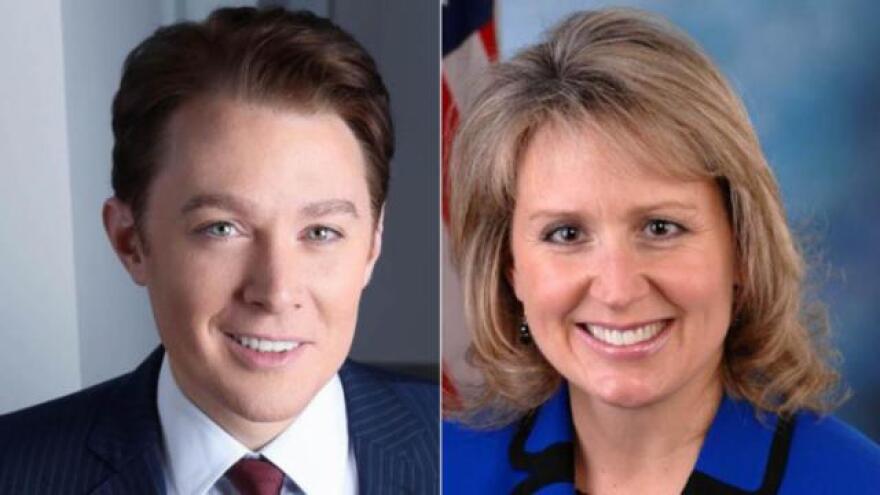Today, we start a series of issues-based conversations about the 2014 midterm elections called The Issues Table. Join the conversation with #SOTIssues on Twitter or email us at sot@wunc.org with "Issues" in the subject line.
Foreign policy is now a top issue in North Carolina’s campaigns. Incumbent Senator Kay Hagan and challenger Thom Tillis have exchanged attack ads about national security.
And the first questions in this week’s debates for the U.S. Senate and the 2nd Congressional District were about how to fight the Islamic State group.
But will the advertisements and rhetoric have an effect on Election Day?
Host Frank Stasio talks with Renee Schoof, McClatchy DC and ąĎÉńapp & Observer reporter; Bruce Jentleson, professor at Duke University’s Sanford School of Public Policy and Global Fellow at the Woodrow Wilson International Center for Scholars in Washington; and Bill Boettcher, associate professor in the School of Public and International Affairs at North Carolina State University.
Deploying ground troops to fight the Islamic State group
- Sen. Kay Hagan: "We need to let the Iraqis and the Syrians fight this battle on the ground. I do think that we need to have a reauthorization of the authority for the use of military force. I have called on the president to bring that before Congress. I would go back to Washington at a moment's notice to have a full debate in Congress on that use."
- Speaker Thom Tillis: "Our allies, our friends, across the world really don't know where this president stands because he telegraphs his place. He gives strength to the terrorists by telling them what we're not going to do. He should have everything on the table, build some credibility, and Sen. Hagan should be right there with him."
Bill Boettcher: "They're each speaking to different constituencies. Democratic voters or likely Hagan voters, when they think about foreign affairs, they're worried about ground troops. They're worried about continued American casualties at war. And when Tillis is speaking to his supporters, they're worried about ISIS and an overall threat environment that they perceive, so they are talking about the same topic, but they're talking about different aspects of that topic.
Bruce Jentleson: "I think the average American looks at the Middle East and says, 'It's a very crazy and confusing place. It can't possibly be something that's either totally our fault or we can totally fix.' As for the boots on the ground, including for military families who have gone through everything they've gone through for the last 10-15 years, I'm not sure you're getting much traction other than the people who are already voting for you by saying, 'Yes, I'll vote for boots on the ground.'"

- Rep. Renee Ellmers: "I believe as Ronald Reagan did: peace through strength. The United States, our military - the best military in the world - and being honored with representing Fort Bragg, we do need to be in the world. We have to show a presence of strength to keep peace."
Moderator: "So, if called on to vote, would you vote to send American ground troops there?"
Rep. Renee Ellmers: "I would."
- Clay Aiken: "I don't believe the U.S. should be policing the entire world and I don't want to use our men and women at Fort Bragg - or any of the men and women who are serving in the military here in the U.S. - as G.I. Joe soldiers, where we place them in harm's way all around the world to police the problems of others. As soon as we see ISIS as a direct threat to U.S. soil, I think we need to attack in whatever way is necessary, but at this point I wouldn't support sending ground troops."
Bill Boettcher: "When you talk about foreign policy, there are not necessarily natural partisan positions. Indeed, back in the late 1990s when we were talking about interventions like Kosovo and more humanitarian interventions in character, it was the Republicans that said they didn't want to be the global policemen and it was the Democrats that wanted to use American troops to secure humanitarian outcomes. I think right now, you see certainly right now within the Democratic Party and the Republican Party a fair amount of disagreement on foreign policy."
Bruce Jentleson: "To go back to Reagan's 'peace through strength,' that was the big, bad Soviet bear... People want a doable mission if you're in the military. I think there's the sense that we are there providing leadership with the countries in the region, but we're not there to do it for them. This is existential to them. It's right on their border. It can affect us, but it's not existential. If they're not willing to get on the ground, I think the average person is saying, 'Why should we do it for them? We'll do what we can from the air and in other ways, but they've really got to ante into the pot.'"



